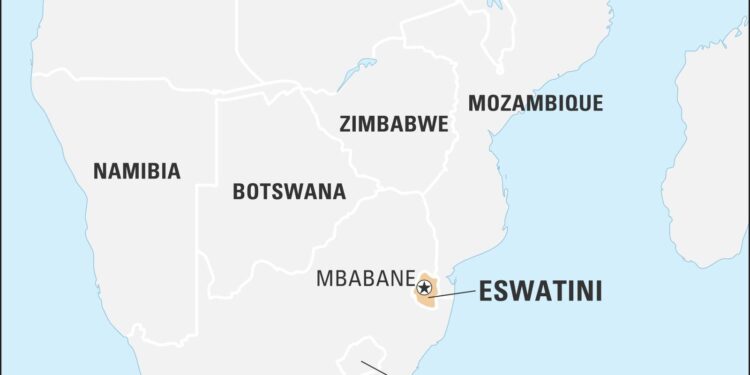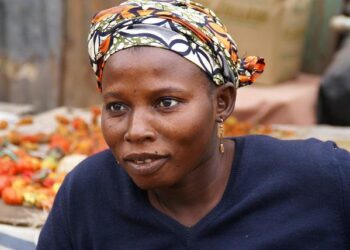Eswatini Making Advances in Women’s Leadership: A New era for commonwealth Sport
As the global landscape shifts towards greater gender equality, Eswatini is emerging as a beacon of hope in the realm of women’s leadership, especially within the context of Commonwealth sports. This southern African nation, known for its rich cultural heritage and traditions, is witnessing a transformative wave that empowers women to take on prominent roles in sports governance and leadership. With significant advocacy from both local leaders and international organizations, Eswatini is not only enhancing the visibility of women athletes but is also reshaping the narrative around female participation in sports governance.As the Commonwealth Games and other international sporting events approach, the strides being made in Eswatini signal a pivotal moment for female empowerment in athletics, positioning the nation as a formidable force on the global stage.This article explores the initiatives, challenges, and successes that define Eswatini’s commitment to advancing women’s leadership in sports, highlighting the collective efforts that are inspiring future generations.
Eswatini’s Path to Gender Equality in Sports Leadership
Eswatini is witnessing a transformative shift in the realm of sports leadership, as women take up more significant roles and influence within the sporting ecosystem. This progress is attributed to concerted efforts from various stakeholders, including national sporting federations, governmental bodies, and non-governmental organizations, all working toward promoting gender equality. Key initiatives have focused on increasing women’s participation in sports at various levels, providing mentorship programs, and creating platforms for women leaders to voice their ideas and drive change.Notable strides made include:
- Increased Visibility: Women athletes are receiving more media coverage, highlighting their achievements and inspiring future generations.
- Leadership Training: Specific programs are being developed to empower women in decision-making roles within sports organizations.
- Community Engagement: Local initiatives aimed at raising awareness and educating communities about the importance of women in sports leadership.
The impact of these initiatives is evident through the growing number of women occupying leadership positions in various sporting bodies across Eswatini. These women not only serve as role models but also contribute to shaping policies that support an inclusive sports culture. As the landscape evolves, further investment in capacity building and targeted outreach will be crucial to sustaining this momentum. A table highlighting the progress can further illustrate these advancements:
| Year | Women in Leadership Roles | New Programs Launched |
|---|---|---|
| 2021 | 25% | 3 |
| 2022 | 40% | 5 |
| 2023 | 55% | 7 |
Empowering Women Athletes: Strategies for Sustainable Development
In recent years, Eswatini has emerged as a beacon of progress for women’s leadership in sports, aiming to bridge the gender gap and enhance female participation at all levels. Through concerted efforts by local organizations and international partners,a framework has been established to empower women athletes,focusing on holistic development and sustainability. Key strategies include:
- Mentorship Programs: Pairing rising athletes with established female leaders to provide guidance and support.
- Access to Resources: Facilitating funding and training opportunities specifically targeted at women in sports.
- Community Engagement: Encouraging grassroots involvement through local events that promote woman-centric sports initiatives.
- Policy Advocacy: Collaborating with governmental bodies to promote legislation that supports gender equality in sports.
This thorough approach has not only nurtured young talents but has also laid the groundwork for a sustainable sports ecosystem. By highlighting the achievements of women athletes and fostering leadership skills, Eswatini aims to create a ripple effect that leads to broader societal change. Furthermore, these initiatives are being supported by a robust monitoring framework that allows for:
| Focus Area | Current Status | Future Goals |
|---|---|---|
| Participation Rates | Increased by 30% in the last 3 years | Achieve 50% female participation by 2025 |
| Leadership Roles | Women hold 20% of coaching positions | Target 35% leadership representation within 5 years |
| Sponsorship Opportunities | Limited funding available for women-led initiatives | Attract new sponsors focused on women’s sports |
recognizing Role Models: Celebrating Success Stories in Eswatini
Eswatini has been making notable strides in women’s leadership, particularly in the realm of sports. recognizing the pivotal role of female athletes and leaders, the nation showcases a series of remarkable individuals who have broken barriers and redefined expectations within the community. From grassroots initiatives to national representation, these influential women serve as role models, encouraging the next generation to pursue their dreams passionately. Key figures who have emerged include:
- Nomcebo Mthethwa – A trailblazing soccer player advocating for women’s rights in sports.
- Thuli Dhlomo – An inspiring coach actively mentoring young female athletes.
- Linda Gumbi – A sports administrator working to elevate the status of women in sports federations.
These success stories not only highlight individual achievements, but also reflect a broader commitment to fostering an inclusive habitat where women can take on leadership roles. by empowering female athletes and leaders, Eswatini is setting a robust precedent for collaboration and growth in sports. To further illustrate the growing influence of women in leadership positions, consider the following table that captures the representation of women in key sports leadership roles across the nation:
| Sport | Female Leaders | Percentage of female Participation |
|---|---|---|
| soccer | 5 | 30% |
| Athletics | 3 | 40% |
| Netball | 4 | 50% |
in summary
Eswatini’s strides in promoting women’s leadership within the realm of Commonwealth Sport reflect a broader commitment to gender equity and empowerment. By investing in initiatives that elevate women in sports leadership roles, the nation is not only transforming the landscape of athletics but also inspiring a new generation of female leaders. As Eswatini continues to champion inclusivity and diversity, these advances serve as a beacon for other Commonwealth nations, highlighting the pivotal role that sport can play in driving social change. The ongoing support for women’s involvement in sports leadership is a testament to Eswatini’s vision for a more equitable society, where women’s voices and talents are recognized and celebrated on and off the field. As we look to the future, the progress made in Eswatini stands as a powerful example of how sport can be a catalyst for societal conversion, paving the way for lasting change both within the nation and across the Commonwealth.











